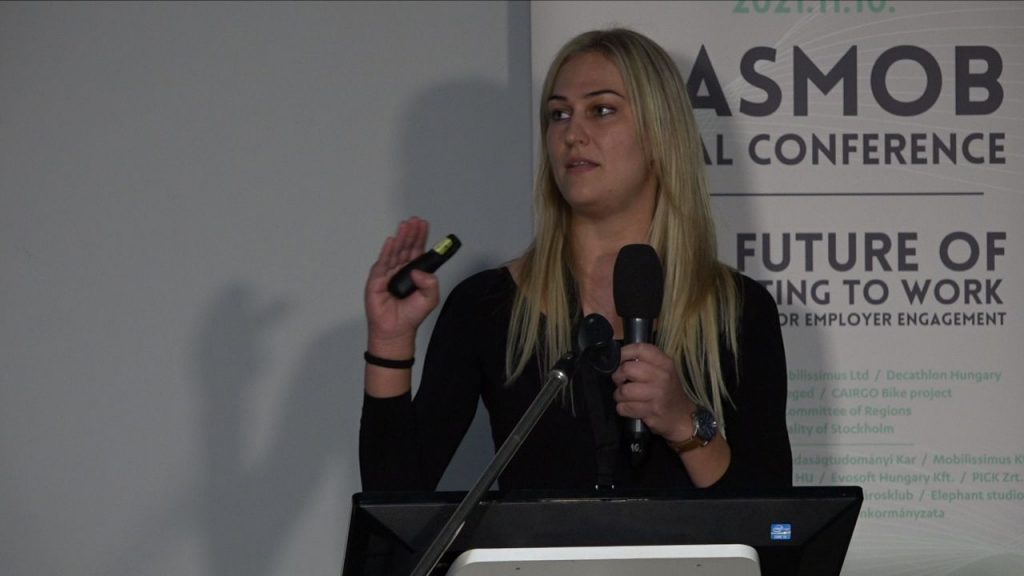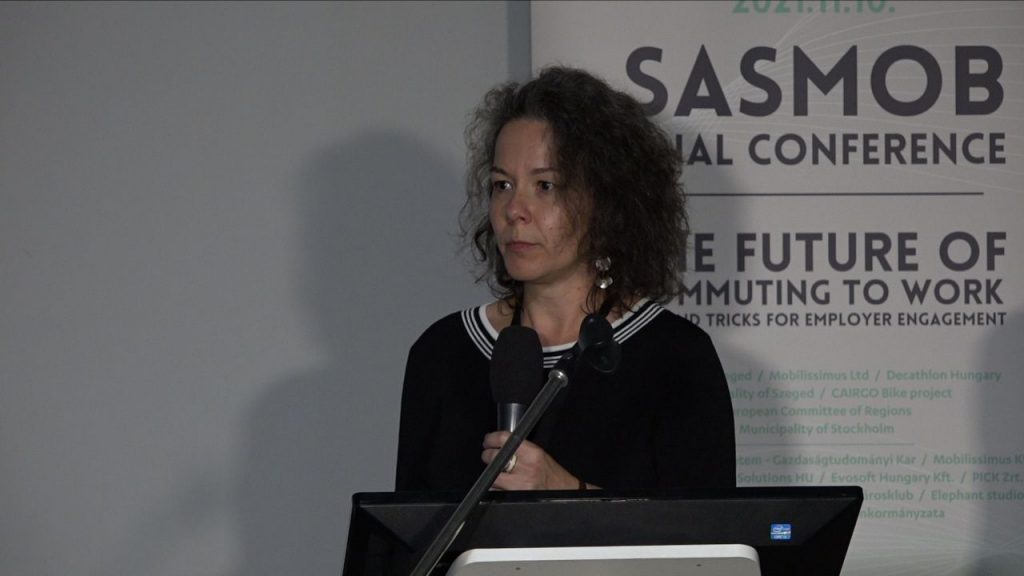Sustainable Mobility Management Course at the Faculty of Economics of the University of Szeged
We are members of the same community: at the closing conference of the SASMob project, Boglárka Méreiné Berki and Barbara Mihók, staff members at the Research Centre of the Faculty of Economics of the University of Szeged said they had created a platform which any university student could access to talk about sustainability and mobility as never before.
Networking and community building are key tasks of the Faculty of Economics – it is no coincidence that the SASMob project also covered these areas. Boglárka Méreiné Berki and Barbara Mihók launched a course in several semesters which any student of the University of Szeged could take up.
At these classes, the topics were the aims of SASMob:
- how Szeged could be made even more liveable and greener,
- how we could travel in an even more sustainable way,
- what we should do for change.
In her presentation at the closing conference, Boglárka Méreiné Berki said if we looked at ourselves as a community, it could be a motivation for us for change and for the willingness to act.

– If we have an aim of which we have the same view, it is easier for us to achieve it together – the worker Research Centre of the Faculty of Economics said. According to Boglárka Méreiné Berki, one of the key issues of our days is whether we are able to create a community in which we think and act by the values of sustainability.
The Faculty has done two things to this end:
- it seizes all opportunities to recruit new partners,
- it has launched the above-mentioned course on sustainable mobility management at the Faculty.
Involving new partners: the aim is to work out mobility plans
Barbara Mihók talked about the good practices of partner recruitment. One of the key aims of consultation processes is information supply: what those who are already members of the SASMob project can gain and what those who will join in the future can get. – If we manage to involve an employer in Szeged, it is also an aim that the given employer makes its own mobility plan – said Barbara Mihók. She also mentioned that the consultations had always been visited by someone from the Municipal Government, Sándor Nagy, Vice Mayor for City Development, had attended these meetings on several occasions, but, for instance, the representatives of Szeged Transportation Company had also taken part in these talks numerous times. This means that course participants could meet experts who could answer mobility related questions from personal experience.

Finally, sixteen new partners joined the recruitment efforts organised by the Faculty of Economics, discussions were ongoing with an additional three partners about accession at the time of the closing conference – and new contacts were being made. The question that was perhaps most often asked of Barbara Mihók’s team was this: “what is good for us in joining this SASMob project?” They also saw that to many companies the issue of sustainable mobility was not at all new, they had already had their own initiatives in the area, yet they welcomed the idea that Szeged as a city would like to take action.
A Course for the Future: To the Arena!
Finally, the question arises: why was the sustainable mobility management course launched? What the staff of the Research Centre of the Faculty of Economics wanted to create was not a traditional – teaching, participation, exam – course. – We wanted to get away from the framework of conventional teaching. Our goal was to create an arena where students, the university, NGOs and decision makers could meet and talk with one another. We have done three semesters, the curriculum has continuously been changing – said Boglárka Méreiné Berki.
The course had the goals
- to provide students with practical knowledge using the experience and knowledge of the different local participants,
- to connect the different local participants, along environmental and social sustainability and
- efforts were also made for awareness raising.
– What we wanted to pass on to the students was not formal knowledge – emphasised Boglárka Méreiné Berki. In the coming semesters, the course will also be delivered in English. Semesters always began with the theory foundations, then students dealt with a popular economic theory called capability approach. It was then that the different aspects of sustainable mobility were presented –at this point, the course “opened up”. Students became familiar with practical planning, they were presented concrete project experience and also got to know the Greenformers application.
Source: Szeged.hu